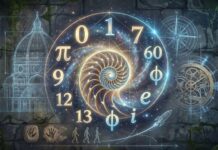
We are thinking all the time. Whether we know it or not. Per recent study from Queen’s University, we have more than 6,000 thoughts each day. Researchers somehow created a process to detect when one thought ends and another begins.
Now, while this is an interesting approach and a noteworthy accomplishment, we really cannot know for sure if it is completely correct. Measuring thoughts is not exactly a straightforward process. It’s not like you can measure amount of thoughts as you can amount of beer in your bottle.
Nonetheless, I think we can all agree that this number (6000 thoughts a day) sounds somehow correct. I mean just think about it (no pun intended), for a second. Whenever you’re lying down, trying not to think, your brain creates different thoughts all the time.
As per mentioned study from Queen’s University this would then calculate to having different thought every 14,4 seconds. This seems about right when you really think about it.
In fact, try measuring yourself. You will probably get lost in a minute, but you’ll get the picture. The brain goes in a different direction every couple of seconds, that’s for sure.
Origin of Thoughts

But where do those thoughts arise from? How do they arise? What is initiator? Let’s probe into more details of known and unknown about origin of thoughts.
If we think about ourselves and our own thoughts, well, for us, thoughts come from nowhere. Subjectively, they (thoughts) just pop up out of abyss. Our first clue would be that it is our brain. Fine, but that is just like saying that Earth is created out of this Universe. It does not give us any particular clues or details of origin. It is just too eclectic way of thinking. We need to get closer to the real origin.
Let’s start from our beginnings as a human species. What kind of thoughts did first homo sapiens have? Surely they haven’t been thinking so much as we do today. They had couple of thoughts that preoccupied them. Eat, survive, copulate and everything in between. They didn’t think about origins of thoughts, nor where do those thoughts go when they are forgotten.
So, thoughts begin to arise depending on the circumstances the person is in. Less development, less thoughts, one could conclude.
By that analogy we will have more and more thoughts as we evolve in future. Perhaps to the point that information overload will completely destroy our thoughts and we’ll develop into zombies without any original thought, but implanted thoughts.
But let’s stick for now to us, modern humans, and our thoughts.
Neurons are Guilty

Since our brain is interconnected with neurons and neural connections then, thoughts must come from interaction of those neurons. Think about it as football, or any other team game. Every player is one neuron. Ball represents connection between neurons. Now, one player has idea about something. This idea is not clear yet. He passes the ball to someone else. Another neuron. This neuron (player) also doesn’t have final idea. After dozens of connections (passing the ball), something happens. All those interactions result in ball inside the football goal.
This is analogy to thoughts creation in a simple manner. But can we perhaps go deeper? Is there something that initiated the original idea in first player (neuron)?
While writing this, I am trying to push myself to create thoughts which will yield best conclusion. I am not poking any individual neuron as we can’t do that yet. I am just initiating thought process that I am familiar of, mixed with initiation of research.
This research then leads me to another thought, which leads me to another and then I create sentences. Again, think about sentence as analogy of a goal in previous paragraph.
So then, this is all nice and dandy, but we still didn’t get to real origin. Does origin really exist or is it all cosmic dust making it’s own ways. Scientists would not agree on that.
As mentioned, physiologically, a thought is a pattern of neurons firing synchronously. Therefore, our subconscious generates all thoughts. That is one thing most neurologists agree on. But the problem is, we cannot even define, or to be more precise, research our subconsciousness.
Final Hypothesis

Since processes in the brain are of physical and chemical origin that create energy to which we don’t have deep insights, then we can all just imagine where do thoughts come from.
Think about the following idea that my thoughts just created:
- We have 86 billion neurons in our brain.
- Every 14 seconds we have new / different thought.
- From the day we are born our neurons started storing those thoughts.
- By year 10 we would have around 22,525,714.28571428 thoughts.
- That is only 1/4th of neurons we have in the brain.
- Those thoughts get stored over time in our neurons.
- Then frontal cortex develops.
- Then we mix thoughts with other unimaginable thoughts to create new thoughts no one ever thought of.
- and so it goes….
My hypothesis here is that our neurons gets filled with information from the day we are born. With different facts, observations, life events, traumas, learnings, happiness, curiosity et cetera… You name it.
Then during our lifetime those storage of data (in neurons), interact constantly and bring up new thoughts to surface. Those neurons are just relentlessly shooting at each other, and something comes up. There is no equation. There is no rule. Sometime something great happens, sometime not really.
Some people say that thoughts arise from the great ether of nothingness. Nikola Tesla, and many other great minds said that they have no clue where their ideas come from. They stated many times that they just woke up and had the idea in their head.
Seems like their shooters (neurons and memories that filled those neurons), just randomly (and perhaps by luck) gathered together to conceive specific original thought or idea.
This is (un)fortunately something we cannot completely comprehend yet. Perchance it is the best that it is like that for now.
Maybe our society is not yet at level of progress to be able to understand origins of our own thoughts without risk of self-destruction.
“Most people would die rather than think – in fact they do so.” Bertrand Russell



























